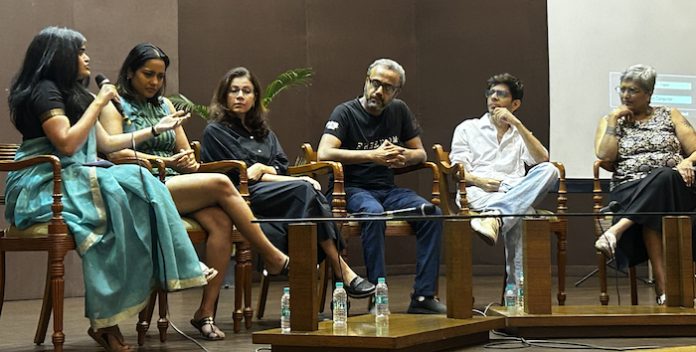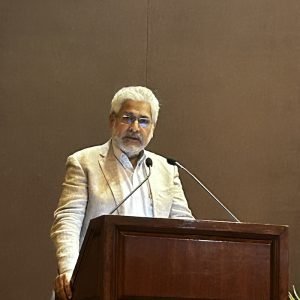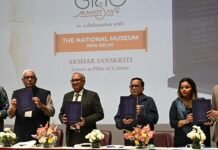
On the evening of 12 May 2025, India’s multilingual news website and video channel Thewire.in celebrated its tenth anniversary at Jawahar Bhavan in Delhi. Founder-editor Siddharth Varadarajan, editor Seema Chisti, and several team members spoke of the news organization’s challenging but largely fulfilling experience over the past decade and its inclusive and democratic process.
Varadarajan addressed the government’s recent takedown of The Wire’s website, quoting his letter to the authorities, but did not mention at the event that it had been restored after the supposedly offending article had been removed. He cited the apprehensions of the three founders (including Sidharth Bhatia and MK Venu), ten years ago, of raising adequate funding from donors and building a responsive and supportive audience and readership.

Speaking to a packed audience of readers, journalists, and supporters, he acknowledged that the decade of successes and occasional failures has demonstrated the viability of the experiment and has led to the creation of a supportive community within the country’s democratic milieu. Varadarajan noted that The Wire is not alone and that the presence of numerous other outspoken and independent news organizations has been mutually beneficial in reinforcing their activity when the so-called mainstream media has abdicated its responsibility and role in democratic discourse. The Wire is mainstream media and not a mere alternative, he asserted.
Varadarajan further noted that The Wire plans to pursue the matter of the website being taken down in the courts. He announced plans in the coming year to hold events across the country as well as launching a competitive festival of short films toward the end of the year.
Panel of filmmakers
A panel of film producers, actors, and directors moderated by The Wire’s deputy editor Jahnavi Sen then took the stage to discuss the prevailing constraints in the cultural ecosphere in the country. The conversation centered on the seemingly irrational censorship power and activity of the film certification body and veered meaningfully to discuss the already widespread social engineering project of the current government to divide the population based on religion.
Directors Dibakar Banerjee, Alankrita Shrivastava, actors Shahana Goswami and Shashank Arora, and documentary filmmaker Vani Subramanian spoke knowledgeably of the various overt and implied types of censorship that challenge the creative growth of the film medium. It is not merely the throttling of films that attempt to break new ground, they said, but more perniciously, the mob endorsement encouraged by a government that increasingly goes further to sponsor and promote films that project hate, and the othering of identities and communities.
The familiar audience of academics and journalists included a younger component of students, professionals, and activists who value the community of The Wire. Well aware of the influence of films, their comments and questions to the extremely articulate film panel indicated that the cultural milieu is rich in detail and creative skills. Apart from celebration, the event indicated that it may just be the tip of the iceberg of an expansive, courageous, and ambitious democratic culture in which journalism plays an important part.
















